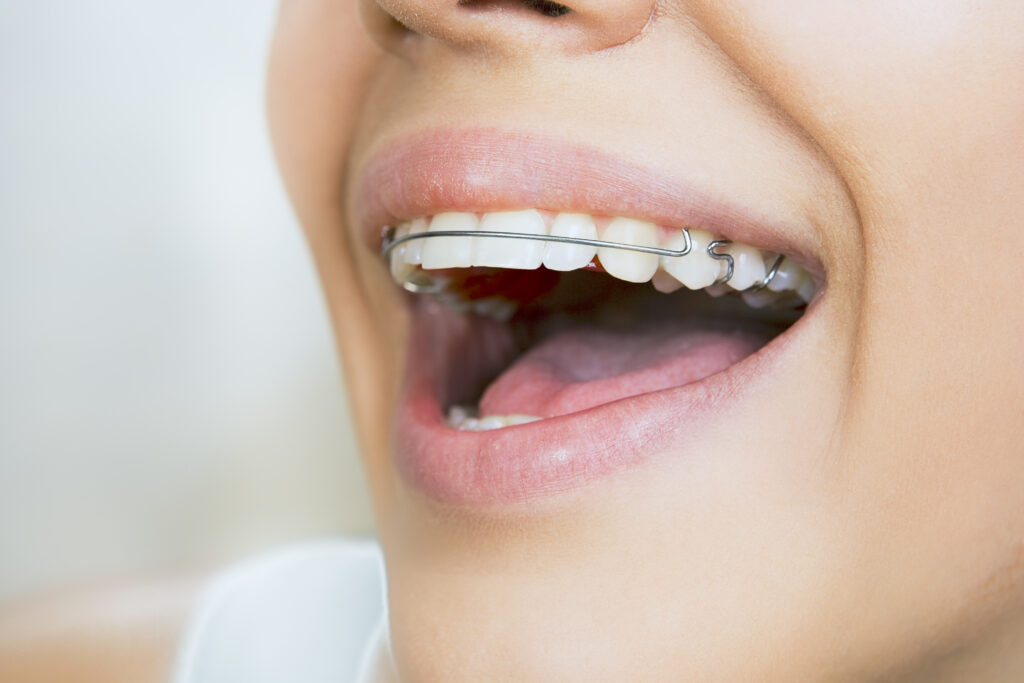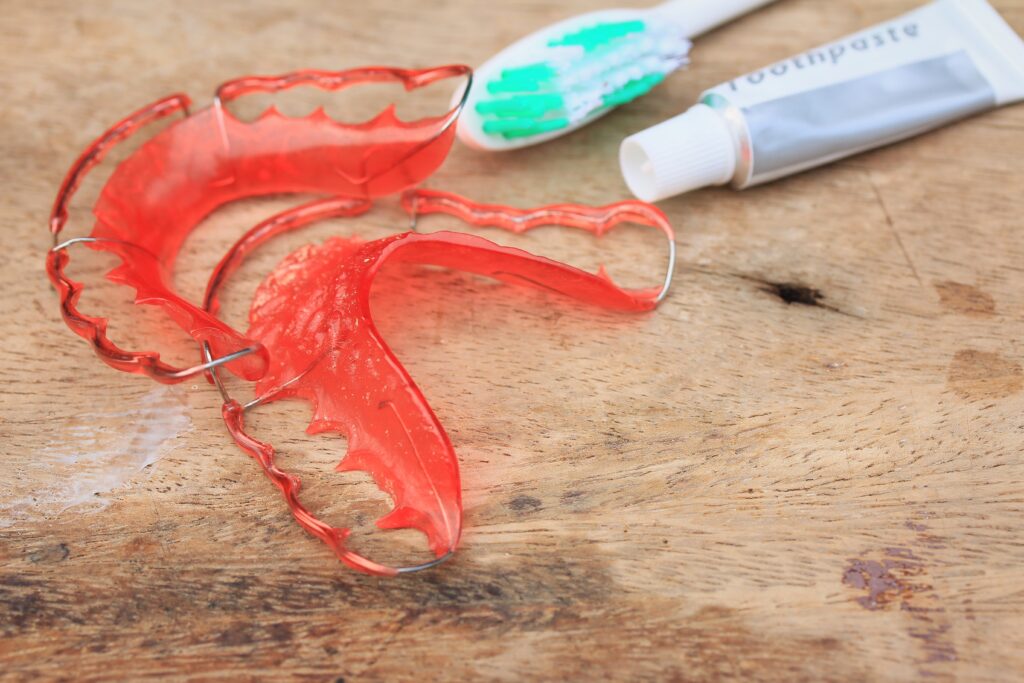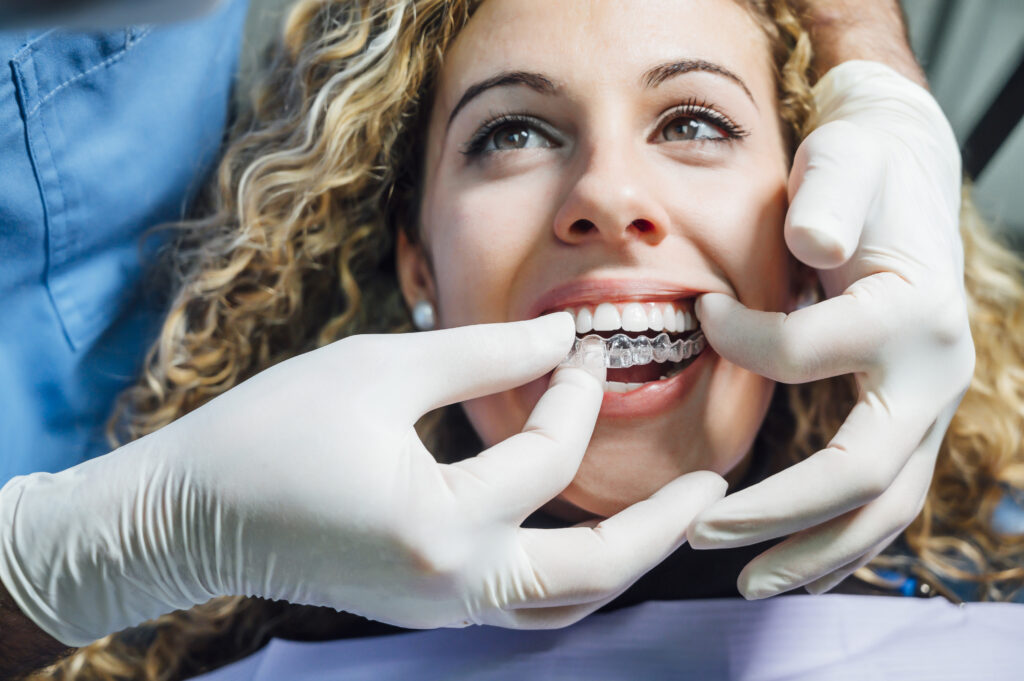Braces are a very common part of the American experience. Straightening teeth can be timely and expensive and often occurs during some of the most embarrassing years. The results are impressive, but it is important that all the toil and discomfort not be in vain. Wearing a retainer after braces is a way to ensure that your teeth stay beautiful and straight, but does that apply to the rest of your life?

The Different Types of Retainer
Managing your retainer after braces depends quite heavily on the kind of retainer you have. There are three general types: permanent retainers, wire retainers, and molded retainers. Permanent retainers, also called bonded retainers, are affixed to the back of the teeth and stay there for the rest of your life. Molded retainers refer to the clear plastic retainers that are becoming increasingly common, especially for adults.
Wire retainers, alternately called Hawley retainers, are the most commonly recommended type by orthodontists, making up almost 60% of cases. All retainers must be taken care of properly in order to protect your teeth and the rest of your mouth from damage and disease. Follow your orthodontist’s care instructions to the letter.
Do You Have to Wear a Retainer Forever?
As with all orthodontia work, every braces and retainer case is unique. However, there are many commonalities. The most important is to heed your orthodontist’s specific instructions for you. Your orthodontist’s experience and familiarity with your shifted teeth will be invaluable.
That being said, the likelihood that you will need to wear your retainer after braces for the rest of your life is high. Your retainer never stops holding your teeth in place, fighting time and genetics to do so, so it is common for retainers to be the new normal once braces are removed.

How frequently you wear your retainer after braces depends on the type of retainer you have and how recently your braces were removed. It is common for orthodontists to recommend wearing the retainer full-time (except during cleanings and meals) for the first 4 to 6 months after braces are removed. After that, usage of removable retainers is usually reserved for nights during sleep. Consult with your dentist for a program right for your teeth.
What Happens If You Don’t Wear Your Retainer After Braces?
The placement of your teeth is the result of an ongoing battle between genetics, age, and orthodontic innovation. Unfortunately, that battle is never over. Your teeth will continue to attempt to shift back to their original alignment for the rest of your life. This process is referred to as relapsing due to mesial drift. If you neglect to wear your retainer after braces, you run the risk of undoing all the work they accomplished.
This is true whether you miss three nights or three years, but the results are proportional to how long you leave your retainer out. If you’ve missed a few days, you have probably noticed how tight your retainer feels when you finally wear it again. You can minimize discomfort and the need for renewed orthodontia by wearing your retainer as your orthodontist prescribes.
How to Care for Your Retainer
The care regime for your retainer after braces depends heavily on the kind of retainer you have. Permanent or bonded retainers cannot be readily removed for cleaning, but you should still brush and floss with diligence. An interproximal toothbrush can help reach the difficult areas and remove tartar and plaque.

If you have a removable retainer, keep it away from both heat and pets. Both of these can distort the shape of the appliance either by chemical or mechanical means. If your retainer is not in your mouth, it should be in its case. Never leave the appliance lying around unprotected. This is the best practice for both your retainer and your mouth.
When your retainer is in your mouth, do not eat and be sure to only drink water. Other liquids can become lodged between your teeth and the appliance, leading to decay. To prevent bacterial growth on your retainer, follow your orthodontist’s cleaning instructions. These may include regularly brushing the appliance or soaking it in a denture-cleaning product.
Are You In Need of Orthodontia?
While wearing a retainer for the rest of your life may seem daunting, the results of a straightened smile are well worth it. Orthodontic work can make your smile achieve its greatest potential, and that can boost confidence and self esteem. While some people hesitate to have orthodontic work performed, the results speak for themselves. Braces and other innovations can help you find the smile you are looking for.
[author_info]